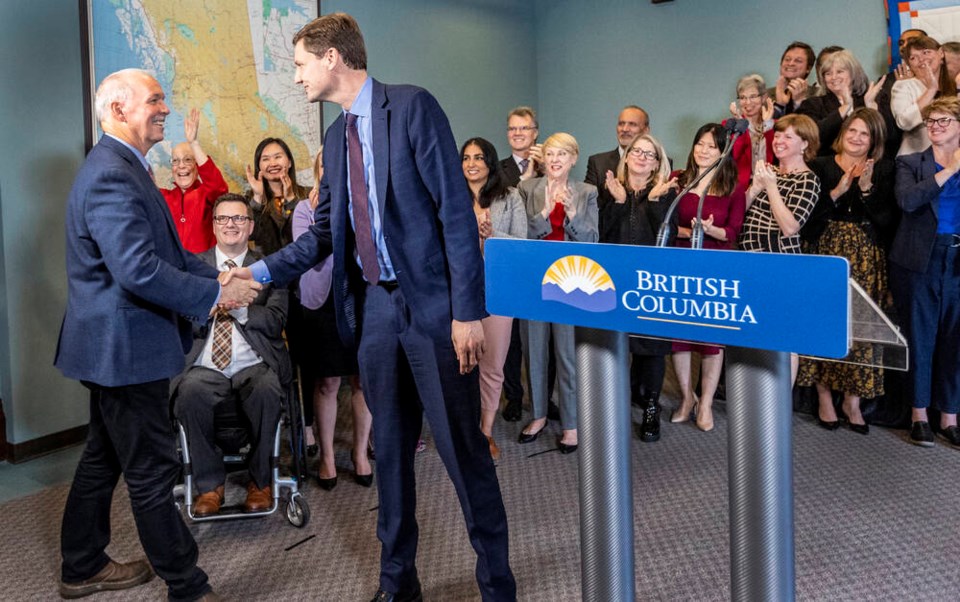This month’s municipal elections may reshape our political landscape in more ways than one.
Most strikingly, voters across the province cleaned house, spurred by the high cost of housing and growing alarm about crime on the streets.
In the capital region, seven new mayors were elected, while in Victoria the entire city council was replaced.
New mayors also won in the province’s two largest cities. Ken Sim defeated incumbent Kennedy Stewart in Vancouver, and Brenda Locke ousted Doug McCallum in Surrey.
The mayors of Kelowna and Penticton went down to defeat, and new mayors were elected in Kamloops, Prince George, Fort St. John, Prince Rupert and Dawson Creek, where the incumbents chose not to run again.
But while it’s clear there was frustration with the old guard, a second issue raised its head.
Provincewide, only 29 per cent of eligible residents cast a vote, down from 36 per cent in 2018. On the face of it, given the evident desire for change, that’s an unexpected outcome.
Part of the reason for this stay-at-home trend may be the huge candidate lists that confront voters in our municipal elections.
In Victoria, a total of 75 candidates ran for council and school board seats. In Vancouver, 15 candidates ran for mayor, 70 for councillor, 32 for park board commissioner and 31 for school board trustee.
Voters have little chance of making an informed selection in the face of such crowded lists.
One option might be to raise the $100 deposit that candidates for municipal office must put up. While everyone who wants to run in an election should have a fair opportunity of doing so, there is also the need to make the process manageable for voters.
The longer-term question is what this housecleaning at the municipal level might portend for the next provincial election.
And here there are some intriguing hints. Responding to the defeat of Vancouver mayor Kennedy Stewart by a tough-on-crime opponent, Premier John Horgan had this to say: “This [election result] is for us all to figure out. To tie it to a public policy question is absurd.”
That sounds as if a raw nerve was touched. Since when are elections not about public policy issues?
Was Horgan anxious to steer fallout away from new party leader and premier-designate David Eby?
For Eby has been the minister responsible for dealing with the two predicaments that most inflamed municipal voters, unaffordable housing and repeat criminal offenders.
To date, his position on the latter has been that in the main, this is a drug-related or mental health-induced crisis. Tougher prosecution policies and longer prison sentences are not the answer.
But this is an increasingly tough sell with voters, as Vancouver’s incoming mayor, Ken Sim, understood when he promised to hire 100 new police officers to complement the hiring of 100 more mental health nurses.
Eby may have decided to shift ground on this issue. Laying out an agenda for his first 100 days, he now says “no tools are off the table to address this issue.”
How far he is willing to go, however, remains to be seen.
If two years from now at the next provincial election, street crime remains a dominant issue, Eby will need more than brave words to avoid the fate of those big city mayors.



